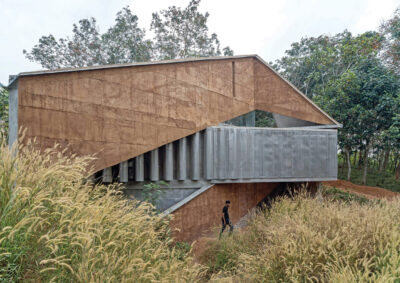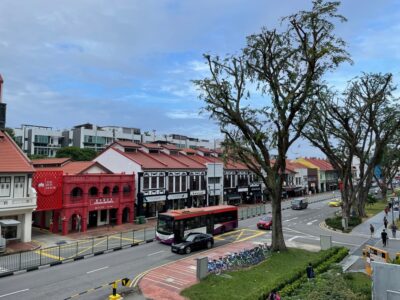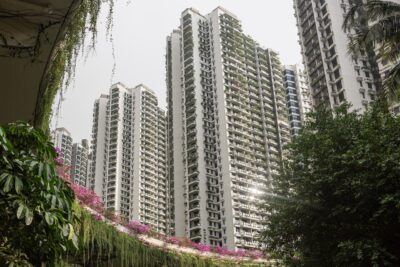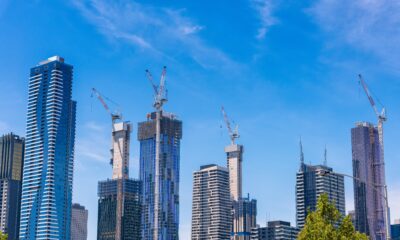Town called malice

A new town land development programme has led to rare protests in Hong Kong
In mid-June, nearly a thousand protesters disrupted a finance committee meeting at the Legislative Council to oppose the Hong Kong government’s plan to develop a big portion of land in the Northeast New Territories (NENT) region. The unspoiled tract will make way for the establishment of two new urbanised towns where some 60,000 public and private housing would be built.
The long-term rural development plan, which is still in the planning stage, for the dual-town project will affect an estimated 1,000 residential plots in the area and could displace up to 500 families, Hong Kong’s Secretary for Development Paul Chan told international media.
Although the protests were almost unprecedented based on Hong Kong standards, the public outcry has been generally peaceful, but many residents—who mostly come from affected villages—are not hiding their disapproval.
“The protests need to be seen in the context of a population that is increasingly frustrated with the pace of political reform, with a lack of transparency in government decision-making processes and with concerns that Hong Kong people’s interests are not being served,” said Christopher Dillon, author of Landed: The Expatriate’s Guide to Buying and Renovating Property in Hong Kong.
One of those concerns is whether China will continue to honour Hong Kong’s 50 years of autonomy. In a recent editorial The Economist stated that Beijing leaders are increasingly becoming “less respectful” of that promise especially with the release of the ‘White Paper’ reiterating China’s total authority on the former British colony, triggering the anger of pro-democracy Hong Kong residents and creating a judicial showdown.
“I understand that the protests have attracted professional rabble-rousers, hoping to escalate the violence,” Dillon, who has been based in East Asia for many years, said. “But for the most part, the new town programme has been successful. I was told by a retired official that in previous new town projects, residents would approach the government asking to have their land included in the programme.”
Land scarcity in Hong Kong is a serious concern and a carefully studied sustainable development plan approved by HKSAR officials is necessary, according to David Ji, head of research and consultancy for Greater China at global real estate services firm Knight Frank.
“The government is moving towards this direction to set up such long-term master plans for the city, therefore they are in the meantime trying to obtain support from the public.”
He noted that to date, 70 percent of Hong Kong’s land is devoted to country parks, whilst the densely populated urban areas of Kowloon and Hong Kong islands have very limited undeveloped land. In fact, Hong Kong Island can only generate 10 percent of future housing unit supply—a driving force behind the government’s plans to develop new towns in NENT and also on Lantau Island.
The pressing problems for land availability and housing, combined with the government’s alleged “forceful approach” of the new town development, have been the main reasons why there is a public outrage, according to anonymous administrators of online blog The Real Hong Kong News based on their data gathered from local news reports and social media.
“The plan will uproot all the farming activities in Hong Kong which will further Hong Kong’s reliance on agricultural import (whether from China or anywhere else in the world), the collusion [among the> government, tycoons and developers, [and> direct conflicts of interest,” citing Mr. Chan’s land ownership in the region.
Members of the opposing groups have started online petitions pleading to stop the execution of the NENT plan, claiming that the ‘One Government, Two Systems’ agreement between Beijing and HKSAR may be “threatened or even abolished” when the project eventually dissolves the border and allows mainlanders to live or work in Hong Kong without a proper visa.
Since 1999, Beijing’s regime has mandated the influx of a maximum of 150 mainland emigrants to Hong Kong per day. Some claim this contributes to the political problems and can affect the entire population of Hong Kong in the long run due to the repercussions of weak border and immigration control policies.
Opponents also contend that the housing shortage is actually directly caused by the lack of population policy. The Real Hong Kong News team said that in order to address that core problem existing government policies on population control would need to be reviewed as a whole.
“The overcrowding causes property market speculation (and high inflation on the prices of many other goods and assets), which in return causes the mismatch between the supply of property available in the market (including luxury properties) and the demand for housing.”
Indeed, as the Mainland property market slumps, more China-based developers and affluent mainland buyers are already starting to explore real estate opportunities in Hong Kong—which is generally considered a more lucrative and stable market—competing with locals and thereby increasing demand that fuels property prices to go up.
When Mr. Chan visited the Hong Kong General Chamber of Commerce last 3 July for a ‘Meet the Ministers’ town hall talk, villagers who stand to lose their homes and livelihood with the NENT new town plan were reportedly not given an opportunity to voice our their opinion before he left the venue, which could add to the misunderstanding between the two camps during this crucial planning stage.
“Any major infrastructure, development or re-generation plan in any city must obtain the support of various interest groups in order to succeed. Prolonged disagreement among various groups will make urban regeneration and sustainable development very difficult,” said Knight Frank’s Ji.
“It is now time for us to start some serious planning and studies to ensure our long-term future amidst fierce competition from other Asian cities.”
Recommended
Meet the vagabond architect behind India’s housing scene
Vinu Daniel is helping to shake up India’s home building setting
Where Asian real estate stands in a fragmented, warmer world
Asia’s real estate industry faces many and varied challenges as external factors continue to bite
6 sights to see in Singapore’s Marine Parade
Handily located Marine Parade has emerged as a vibrant investment choice in the Lion City
There’s a township dedicated to health and wellness in Malaysia
Property seekers have their health needs catered for at KL Wellness City








